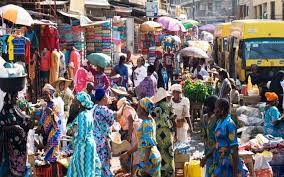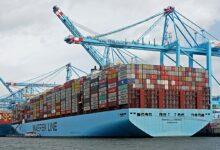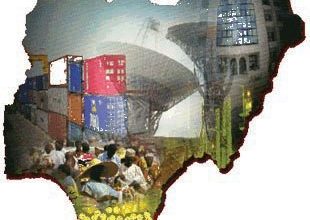
10 Economic Factors in Nigeria
Economic Factors in Nigeria- Nigeria is an underdeveloped country with a population of over 250 million people. Although endowed with many natural resources, the economy still depends heavily on the oil sector which is the majority of government revenue. However, the country has been facing economic challenges in recent years due to a continuous decline in oil prices, devaluation of the currency, and non-diversification of the economy. To move the nation’s economy forward the government has continued to implement various initiatives to tackle these issues and enhance the overall economic state of the country. JAMB Portal
Read Also: 10 Economic Factors Affecting Business in Nigeria
👉 Relocate to Canada Today!
Live, Study and Work in Canada. No Payment is Required! Hurry Now click here to Apply >> Immigrate to CanadaWhat Is An Economy?
An economy is a system of production, exchange, distribution, and consumption of goods and services in a given society. It also refers to how a society handles its production and consumption of goods and services to meet the rising needs of the people.
Meaning Of Economic Factors?
Economic factors are the various elements that determine the performance of an economy. Some examples of economic factors are the general level of prices, interest rates, unemployment, and gross domestic product. Other vital economic factors include business investment, foreign trade, and policies of the government.
Read Also: 10 Factors Affecting Leadership in Nigeria
What Is Economic Growth?
Economic growth is the increase in a country’s production of goods and services over a specific period. It is usually measured by the increase in the Gross Domestic Product which takes into account all the goods and services produced locally in the country. Economic growth is a key requirement for a country to develop and improve the living standards of its citizens.
What Is Economic Development?
Economic development is the systematic process of improving the economic well-being and quality of life of a country. It is a more robust and wider concept than economic growth, which focuses solely on increasing a country’s production of goods and services. Economic development comprises a wide range of issues, including but not limited to, reducing unemployment and Improving infrastructure such as transportation, and education.
Ways to Improve the Nigerian Economy
There are several ways in which the Nigerian economy can be improved. Some possible options include:
- Diversification of the economy: Nigeria has been over-dependent on oil for the majority of its revenue. This has greatly affected its prosperity as there are fluctuations in the economy. However, when the economy is developed, stable sources of the economy were created and new jobs. Good Morning Love Message
- Reducing corruption to the barest minimum: Corruption is one of Nigeria’s major problems, and it can discourage foreign direct investment. Corruption should be tackled through increased transparency, and strengthening institutions can help to improve the business environment.
- Enhancing foreign investment: To do this, Government can also provide incentives and support to attract foreign investors.
- Supporting small and medium-scale: Small and Medium-Sized enterprises are important drivers of economic growth and the creation of jobs. Government can support Small enterprises through various policies and programs that provide access to training, finance, and opportunities. NYSC Portal
Read Also: 10 Factors Affecting Labour Force
Types of Economic Systems
There are several types of economic systems, which can be broadly categorized into the following categories:
👉 Relocate to Canada Today!
Live, Study and Work in Canada. No Payment is Required! Hurry Now click here to Apply >> Immigrate to Canada- Capitalism: In this economic system, the means of production are privately owned and operated for profit. The government plays little or no role in the economy, and the market is guided by the forces of supply and demand.
- Socialism: Socialism is an economic system where the means of production and distribution are owned publicly and controlled by the government.
- Mixed economy: This is a combination of both capitalist and socialist systems.
- Traditional economy: Traditional economy is a system that is based on the society’s beliefs and customs. The activities are based on agriculture, battering, hunting, etc. Romantic Love Messages
History of Nigeria’s Economic System
The economic system in Nigeria has experienced significant changes throughout its history. Before the arrival of the British, Nigeria had an agrarian economy. Different areas of the country developed their economic systems, by relying heavily on trade and subsistence farming. This traditional economy continued into British rule.
After Nigeria gained independence From the British in 1960, the mixed economy model was adopted. Key industries such as banking were nationalized and policies that promoted industrialization were formulated.
In the late I980s the too early 1990s, Nigeria implemented the International Monetary Fund and World Bank’s Structural Adjustment Program, which aimed at promoting economic growth by liberalizing the economy, devaluing the naira, and cutting down on government spending.
However, in more recent years, the various policies of the government to help Nigeria’s economy has been challenged by the level of corruption and political instability in the land. Information Guide Nigeria
Read Also: 10 Factors Affecting Migration in Nigeria
Economic Factors Affecting Nigeria
- Dependence on Oil Prices: Currently, Nigeria is still heavily dependent on its oil exports, such that when the global oil prices sneeze, the Nigerian economy catches a cold.
- High rate of Inflation: Under normal circumstances, inflation in a country should not be more than a single digit, However, Nigeria has a high inflation rate of over 21%, which has been fueled by factors such as currency devaluation and persistent increases in food and prices of the petroleum motor spirit.
- Absence of Political stability: Political instability will always hurt the economy by creating uncertainty for local and foreign businesses and investors.
- Poor Infrastructure: Nigeria’s poor infrastructure, such as shortage of power supply, poor road networks, and internet connectivity, is a major challenge to its growth economically.
- Inadequate Education and Skills: A well-educated workforce is essential for economic development, but Nigeria’s education system still has a hard time providing adequate training opportunities.
- Foreign direct investment: Nigeria depends heavily on foreign investment to drive economic growth, but the texture of its business terrain can be unsafe for foreign investors.
- Neglect of Agriculture: Agriculture in Nigeria was one of the reasons she was called the giant of Africa. However, this important sector of the economy has been neglected in recent years due to the country’s over-dependence on oil.
- Development of the Manufacturing Sector: The Manufacturing sector in Nigeria is not well developed yet, and this affects the level of job creation and economic growth in general
- Consumer Spending: Consumer spending which is a major boost to economic growth is affected by high inflation levels and lack of jobs as people cant spend when they lack the means to.
- Government policies: Government policies plays a major role in determining if the environment of the country is friendly enough for foreign and local businesses to thrive.
Read Also: Environmental Factors Affecting Business In Nigeria
Conclusion
In conclusion, Nigeria’s economy has been affected by several economic factors, such as fluctuations in oil prices, devaluation of the naira, high inflation rates, corruption, lack of political stability, poor infrastructure, and mono- economy. These factors have a significant impact on the overall economic progress of the country and can affect businesses and foreign investors. To make its economy better for its citizens, the government should endeavor to improve infrastructure, tackle corruption, and explore another revenue-generating area of the economy. This will create a more stable future for its citizens.
Check JAMB RESULT
Check and Confirm: How much is Dollar to Naira




